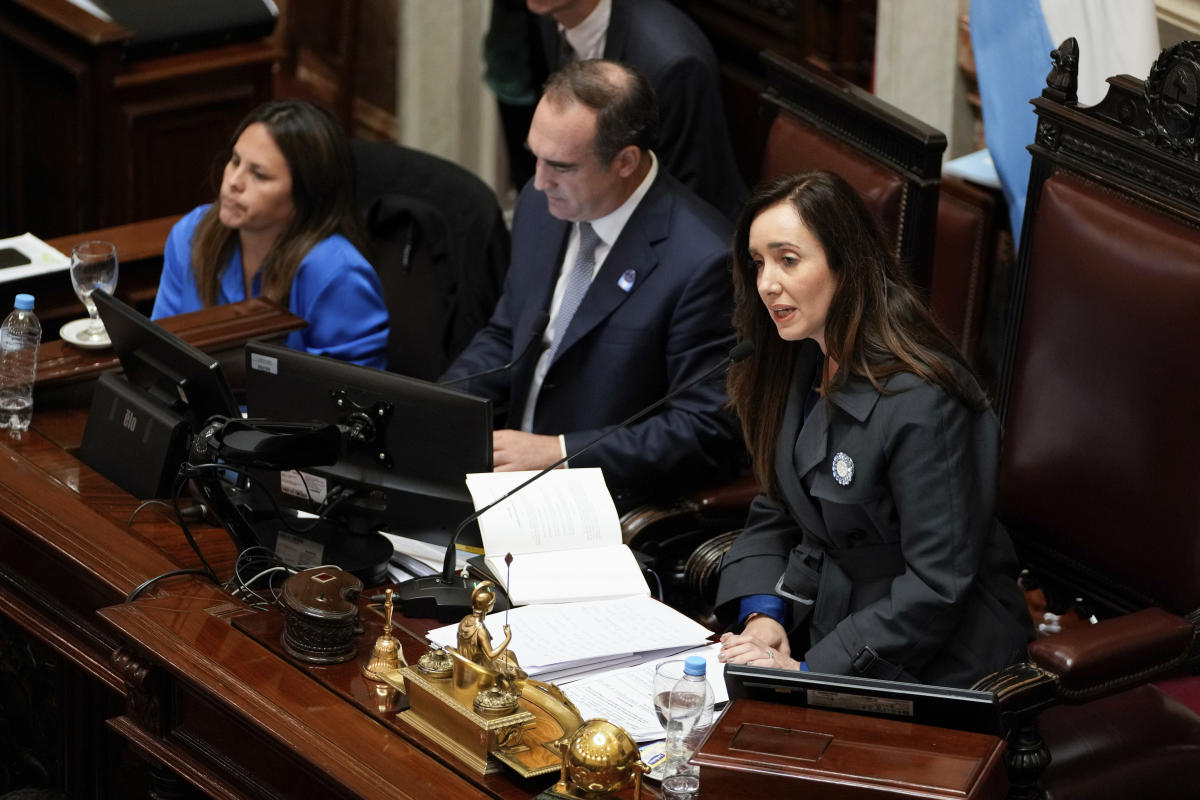BUENOS AIRES, Argentina (AP) — Argentina’s Senate started what’s most likely to be an all-night ballot marathon on the information of President Javier Milei ‘s sweeping propositions to slash costs and increase his own powers early Thursday, soon after providing the strategy general approval in a narrow vote.
Senators voted 37 to 36 late Wednesday to offer provisionary approval to the 2 expenses after a daylong heated dispute while countless protesters put into the streets, encountering policeman, burning automobiles and tossing Bomb. Numerous federal security forces pressed back with rounds of tear gas and water cannons.
The vote — chosen by a tiebreaking vote from Vice President Victoria Villarruel — provided a significant increase to Milei, whose efforts to upgrade the federal government and economy have actually faced hard resistance in Argentina’s opposition-dominated Congress.
“Tonight is a victory for the Argentine individuals and the initial step towards the healing of our achievement,” Milei published on X, calling his expenses “the most most enthusiastic legal reform of the last 40 years.”
However important components of the extensive legislation still need to make it through an article-by-article vote in the Senate. After that, the costs heads back to the lower home, where legislators should alright any adjustments before Milei can formally declare his very first legal success.
Conservative and left-wing legislators have actually clashed over numerous parts of the 238-article state reform costs, consisting of the statement of a one-year state of emergency situation and delegation of broad powers to the president in energy, pensions, security and other matters up until completion of Milei’s term in 2027.
Other questionable steps consist of a reward plan that would offer financiers rewarding tax breaks for thirty years.
Milei is a political outsider with simply 2 year’s experience as a legislator, and his three-year-old celebration, Liberty Advances, holds simply 15% of seats in the lower home and 10% of the Senate.
He has actually been not able to pass a single piece of legislation in his 6 months of presidency, raising concerns about whether he can perform his enthusiastic task to cut the deficit and stimulate development. Rather, he’s utilized executive powers to slash aids, fire countless public workers, decrease the value of the currency and decontrol parts of the Argentine economy.
The costs cuts and currency decline that Milei has actually provided have — a minimum of in the short-term — deepened an economic crisis, increased hardship to 55% and sent out yearly inflation rising towards 300%.
“If this law passes, we are going to lose numerous of our labor and pension rights,” stated 54-year-old instructor Miriam Rajovitcher, opposing ahead of the vote along with associates who state they’ve needed to reconfigure their lives considering that Milei slashed school spending plans and decreased the value of the currency. “I am a lot even worse off.”
Experts state the guaranteed advantages of Milei’s reforms — a steady currency, tamer inflation, fresh foreign financial investment — will not emerge without a political agreement to encourage foreign financiers that his modifications are here to remain. Milei’s administration has stated it wishes to strike a brand-new offer with the International Monetary Fund, to which Argentina currently owes $44 billion.
“Everybody remains in a wait-and-see mode,” stated Marcelo J. García, Americas director at geopolitical danger company Horizon Engage. “Financiers state, ’Yes, we enjoy what you’re stating, however we require to see that this is sustainable.”
Milei’s allies stated they had actually made hard concessions Wednesday. His celebration, Liberty Advances, concurred not to sell the nation’s post workplace, flagship airline company Aerolíneas Argentinas, or the general public radio service, leaving simply a handful of state-owned companies, consisting of Argentina’s nuclear power business, on the block for possible privatization.
Milei’s initial pitch late in 2015 to privatize more than 40 state-owned Argentine business triggered an outcry from the nation’s effective Peronist-dominated labor motion.
That was audible ahead of the Senate vote Wednesday in downtown Buenos Aires, as lenders, instructors, truckers and countless union members and activists assembled around Congress. They shouted: “Our nation is not for sale!”
